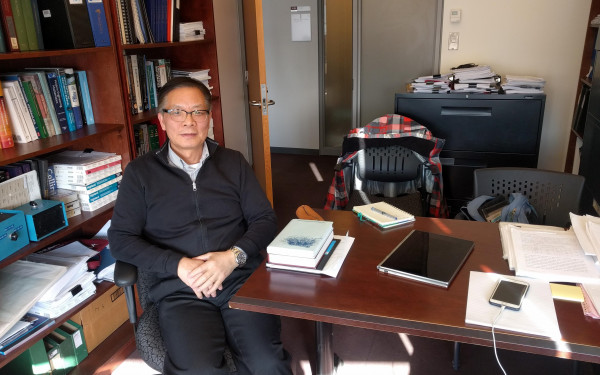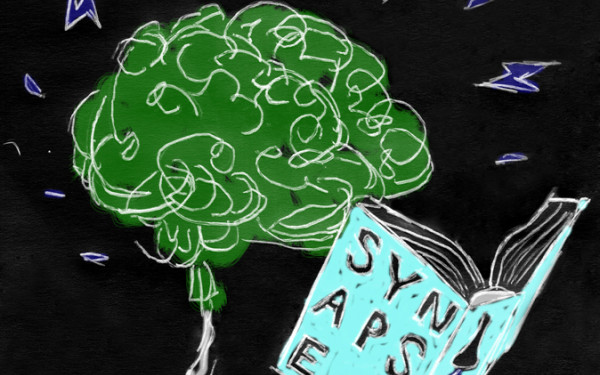Montreal Marches for Science Research and Funding
Climate, Evidence-Based Policy, and Academic Freedom On The Line
“Pour la science, on avance!” crowds chanted as hundreds marched through the streets of downtown Montreal Saturday afternoon.
Starting at Place Emilie-Gamelin, the Montreal March for Science was one of 500 similar events organized around the world in response to the Trump administration’s cuts to the Environmental Protection Agency, and the removal of scientific data from federal websites, said organizer Ariane Ollier-Malaterre.
“What started the movement is that scientists feel the urge to celebrate science contributions to society and humanity, […] and also the urge to defend science against threats and attacks,” explained Ollier-Malaterre.
“So we are here to stand up, to explain scientific methods, to explain why our contributions matter, and to demand that public policies be based on evidence,” she continued.
After the march, Dr. Peter Shizgal, a Concordia University professor in behavioural neurobiology, told the crowd gathered at Place du Canada that, “We are proud of what science has achieved and promises, yet we also fear foreboding what lies in store.”
“We are gathered here on Earth Day, aghast at what has become of our habitat,” Shizgal continued, listing rising sea levels, melting polar ice caps and expanding deserts. “We march to affirm the crucial role of science, sustainable development, democratic governance, and evidence-based policy.”
5_850_1050_90.jpg)
Dr. Homa Hoodfar, the former Concordia University professor who was held in an Iranian-prison for 112 days last summer for her research, also addressed the crowd, and spoke to the importance of academic freedom worldwide.
“Nowaday, in a global world, our research and science takes us outside our institution and national boundaries,” she said. “Our research doesn’t belong to our nation, but belongs to the world.”
She said that as western European countries turn to far-right political parties, and given the current political of the United States, academic freedom is under attack. To counter the silencing of scientific research and academia, she said it is important to be present and vigilant for our peers across borders.
Ollier-Malaterre echoed Hoodfar, acknowledging that Canada’s scientific climate is equally precarious. “We musn’t believe that Canada is safe,” she said. “There are no immediate threats in Canada, but we are proactively and preventatively standing up because these are troubled times throughout the world.”
Others argued that Canada does in fact face imminent threats, with federal funding for scientific research and development continuously declining.
The 2017 Naylor report, which looks at Ottawa’s spending on fundamental science, found that Canada has been lagging behind other G7 countries, like the U.S., China, South Korea, Australia and Japan, in this regard. This, the report says, renders Canada significantly less competitive than its international peers.
“This is unprecedented around the world,” said Concordia Exercise Science Graduate Program Director Dr. Simon Bacon.
He explained that the majority of research funding comes from universities themselves, not the government. The result, he continued, is less money for teaching: “So not only does the science suffer, the whole educational experience suffers too.”

_900_570_90.jpg)
3_638_1050_90.jpg)
6_900_600_90.jpg)
4_700_1050_90.jpg)




